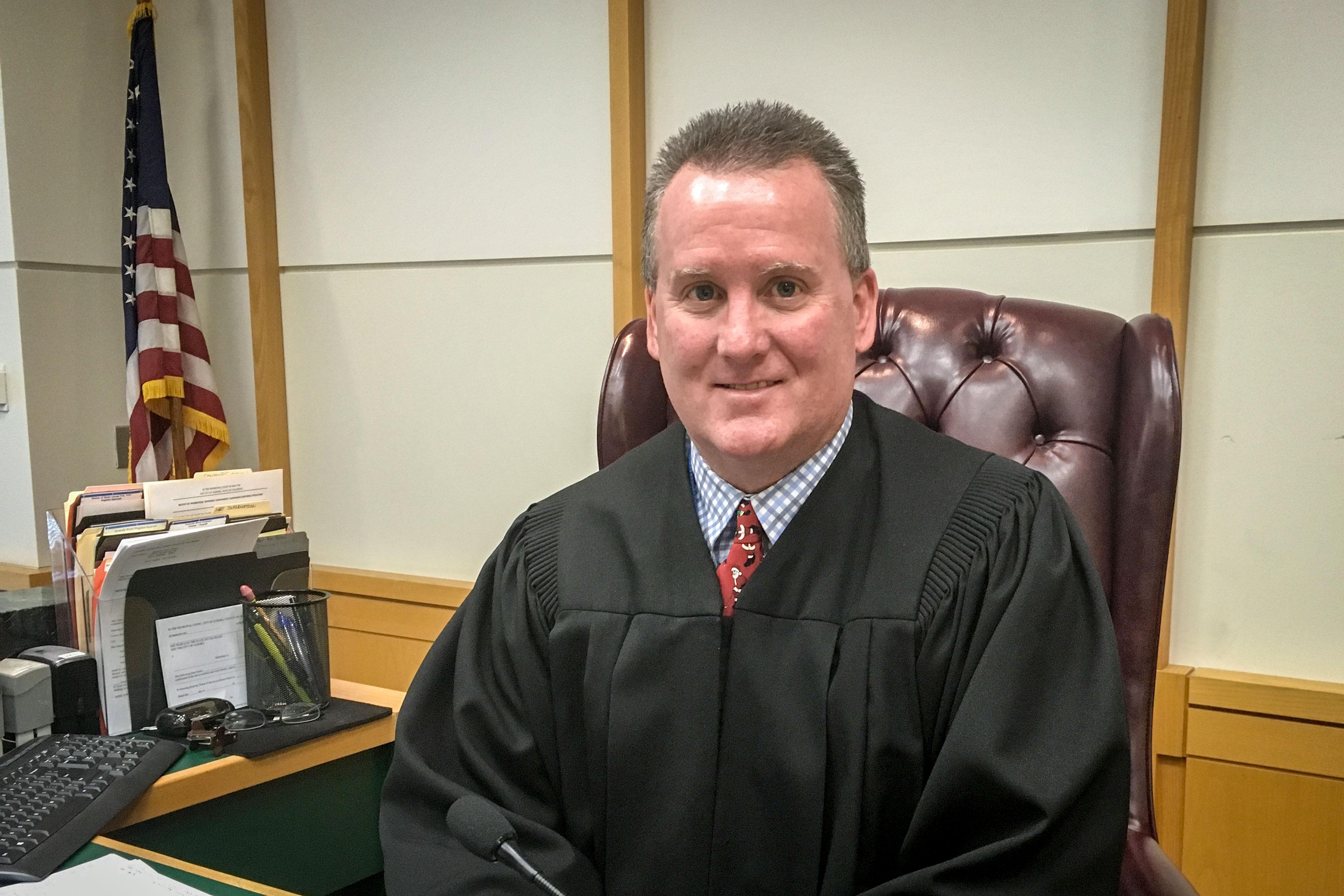

Facing severe jail overcrowding and a constitutional challenge, a handful of metro area city judges are getting rid of cash bonds when someone is booked in jail before a trial.
Local judges say they were swayed by a Texas court opinion last year that found the mostly poor defendants languishing in jails before being convicted of anything was unconstitutional. Others say there is no proof that cash bonds actually promise future court appearances.
The move away from money bail is part of a larger trend sweeping the country on how to treat defendants pre-trial — before they’ve been convicted of anything.
“You can’t set a bond amount that a person can’t post,” said presiding Aurora Municipal Court Judge Shawn Day. “You can’t treat someone with money differently than someone who doesn’t have money.”
Day said he changed his approach to cash bonds in Aurora after reading about a case out of Harris County, Texas. A federal judge last year threw out the county’s bail system, saying it was primarily affecting poor people and violated the equal protection clause of the Constitution.
“It’s never been my intention to be the leader on this, I looked at it from the viewpoint that this is required by law now,” Day said. “I think this is what the law requires and that all judges and all courts should follow the law.”
In addition to Day, judges in Boulder, Northglenn, Golden and Denver are working on reforming money bonds.
Boulder’s presiding judge Linda Cooke has mostly eliminated money bonds in her court. She is also working on different ways to get vulnerable populations — including the homeless — back to court so they don’t have a “failure to appear” on their record. This can spark a warrant for arrest.
Cooke said much of the reform in Colorado is starting locally because municipal courts don’t have to navigate the large state court bureaucracy.
“We have the opportunity to be sort of incubators for reform,” Cooke said. “I think being made aware of the Harris County opinion … it really gives us the opportunity to do something at our individual court level.”
Judges have traditionally used cash bail to incent people back to court for a future date and to ensure someone isn’t a danger to another person or society. Judges still use discretion on the safety piece — and they say that if they sense that a defendant is a danger to someone else, even pre-trial, they will hold them in jail.
Bo Zeerip, chief deputy district attorney in Grand Junction, has been working on reforming money bonds at the state and county court level there since 2011. The number of defendants in Grand Junction who are released on “personal recognizance” bonds, or no-money bonds, has doubled.
“Pre-trial, you’re concerned with court appearance and public safety, those are your two concerns,” said Zeerip, who has traveled around the country to talk about money bond reform. “You’re not allowed to, or you shouldn’t, impose any conditions on people for purposes of punishment because they haven’t been convicted yet.”
Judges still struggle with court appearances though. For many city courts especially, failure to appear rates are extremely high and judges worry that without any cash bonds, there is no incentive for someone to come back to court and face judgment.
Judge Corinne Magid works part-time in Northglenn, Golden and Denver. She mostly lets people out of jail without a cash bond, but she worries about the consequences of someone having multiple failure to appears on their record.
“It might be their 8th failure to appear, there has to be some sort of consequence, we’ve gotta be able to get them there,” she said. “And if it’s only monetary bond, then what else are we going to do?”
Rebecca Wallace at the American Civil Liberties Union is working on it. She said data doesn’t show that cash bonds actually inspire people to come back to court. Instead, simple reminders, like a phone call or a text, work better.
“The goal of the reforms is to ensure that people are not stuck in jail because they can’t pay their money bond,” Wallace said. “Years of great data shows that people who are released on PR bonds … where you don’t pay any money … are equally if not more likely to return to court for appearances than the people who pay money.”
State Democratic Rep. Pete Lee said he will introduce a bill in the state legislature that would launch a pilot to allow some local courts text appearance reminders to defendants. The pilot would gauge whether that helps lower the number of missed court appearances.
Larger conversations are happening among lawmakers about bond reform statewide, as well.
“Most people who miss a court date haven’t fled the jurisdiction. They’ve misplaced the summons or they didn’t put it on their calendar,” Wallace said. “Or they don’t have a calendar.”








